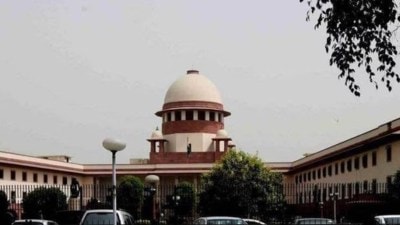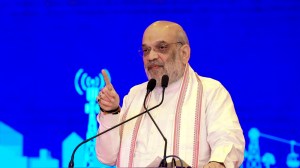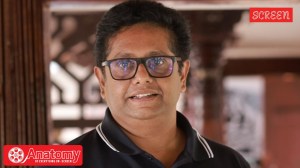Head of Delhi panel on coronavirus suggests centralised admission, more testing
Gearing up for phase 3 of the outbreak, which could see community transmission, Chief Minister Arvind Kejriwal had Tuesday formed a five-member committee to oversee the crisis.
 Over the last two days, ICMR has increased testing centres by roping in private labs across the country. (File/Express photo by Amit Mehra)
Over the last two days, ICMR has increased testing centres by roping in private labs across the country. (File/Express photo by Amit Mehra)
In order to tackle the anticipated stage three of the novel coronavirus that has so far infected 35 people in Delhi, Dr Sarin, head of a five-member committee formed to oversee the crisis, said centralised admission of patients will help more in containing the spread of the virus than multiple hospitals catering to several of those infected.
Five people tested positive for COVID-19 in Delhi on Wednesday, taking the total number of confirmed cases in the national capital to 35. The new cases include a person with a history of foreign travel and four local transmissions. So far, one person has died of the disease, while five have been discharged following treatment.
Gearing up for phase 3 of the outbreak, which could see community transmission, Chief Minister Arvind Kejriwal had Tuesday formed a five-member committee to oversee the crisis. Dr S K Sarin, head of the Institute of Liver and Biliary Sciences (ILBS), has been made the head of the panel, which will submit its initial report to the government in a few days.
Speaking to The Indian Express, Dr Sarin said: “If you have centralised admission rather than multiple hospitals, whether it is public or private, I think you can have a more focussed approach. Centralised means you can have two-three big hospitals rather multiple hospitals so that infectivity is contained and whichever hospital has patients admitted, that hospital will have to be virtually closed. We will assess and give suggestions to the CM; the final call has to be taken by the government. But, ideally, it is better if we are more focussed rather than having multiple small hospitals offering treatment. The infection has to be contained.”
In Delhi, six hospitals have been designated to collect samples for coronavirus testing – Rajiv Gandhi Super Specialty Hospital, Lok Nayak Hospital, Deendayal Upadhyay Hospital, Babasaheb Ambedkar Hospital, Guru Teg Bahadur Hospital and Janakpuri Super Specialty Hospital.
Samples are sent to AIIMS, NCDC, RML, ILBS and LHMC for testing. Over the last two days, ICMR has increased testing centres by roping in private labs across the country.
Highlighting the need for more testing, Dr Sarin said the number of testing centres has to be increased during phase 3. “Another area to look at is scaling up testing facilities. At present, ILBS is among the few labs offering testing facilities to people of Delhi. But, if at all, numbers increase it will be difficult. Now the Government of India has allowed private labs, but our aim should be to have more testing facilities. More kits are being approved by ICMR and FDA. If kits are available, one can have results in a short time. Testing should become easily and readily available,” he said.
Meanwhile, patients and healthcare workers who visited a mohalla clinic in Mohanpuri area of Maujpur between March 12 and to 18 were on Wednesday directed to home quarantine for 15 days, after a doctor there tested positive for COVID-19. The doctor was shifted to Safdarjung Hospital from GTB on Monday night after he complained of breathlessness.
“We should look at the possible ways by which healthcare workers can be protected, like prophylactic drugs such as hydroxychloroquine. It will be vital for us to see that people understand the psychological stress of working under this environment, and it should be addressed. Doctors and nurses working in hospitals at present are under huge stress. We need to see that healthcare workers are de-stressed and not hyper and worried,” said Dr Sarin.
Here’s a quick Coronavirus guide from Express Explained to keep you updated: Are smokers at high risk form coronavirus? | Can Vitamin-C prevent or cure coronavirus infection? | What exactly is community spread of coronavirus? | How long can the Covid-19 virus survive on a surface? | Amid the lockdown, what is allowed, what is prohibited?
Photos





- 01
- 02
- 03
- 04
- 05


























